Canada’s New Democratic Party lost official party status Monday after winning just seven seats in last month’s federal election, the worst result in the party’s history, but interim leader Don Davies said the party will still play an important role in Parliament.
Government House leader Steven MacKinnon said the NDP will not be granted official party status because federal law requires at least 12 seats for recognition.
The NDP was reduced to seven seats from 25 in the April 28 election, receiving 6.3% of the popular vote. The party also lost its leader when Jagmeet Singh stepped down after losing his own seat.
Without official status, the NDP cannot ask daily questions during question period, will not be guaranteed seats on standing committees and will lose financial resources provided to recognized parties.
“I think that we’re going to be able to play a profoundly important role in this Parliament,” Davies told reporters on Parliament Hill. “I think that there is, as in every minority Parliament, a real opportunity for us to push and promote progressive policies.”
Davies noted that any party with seven seats in a minority government “obviously has a balance of power.”
The interim leader said he spoke with the Prime Minister’s Office about obtaining official party status, citing past instances where provincial legislatures granted party status to opposition parties. He said the government “doesn’t seem interested in that.”
“One of the arguments I’ve made is we’re a national party, we had 1.2 million Canadians vote for us, and it’s important that we have the tools we need to function,” Davies said.
The NDP previously lost official party status in 1993 but regained it in 1997.
From earlier: NDP to Seek Official Party Status Despite Falling Below Threshold
Political analysts attributed the NDP’s collapse to strategic voting that benefited Prime Minister Mark Carney’s Liberals. The election saw over 85% of votes go to either Liberal or Conservative candidates, the most concentrated the vote has been in the top two parties since 1958.
The election took place during a trade war between Canada and the United States. President Donald Trump imposed 25% tariffs on Canadian products and has repeatedly suggested Canada should become the 51st US state.
Carney replaced Justin Trudeau as Liberal leader in March after Trudeau resigned in January amid poor polling numbers. The Liberals won a minority government in the April election.
Conservative leader Pierre Poilievre lost his own seat despite his party increasing its overall vote share.
Read: Conservative Leader Poilievre Defeated in Own Riding as Liberals Take Power
Davies said the party is having discussions with other parties about committee representation and is focused on securing resources to maintain its operations.
Information for this story was found via the sources and companies mentioned. The author has no securities or affiliations related to the organizations discussed. Not a recommendation to buy or sell. Always do additional research and consult a professional before purchasing a security. The author holds no licenses.

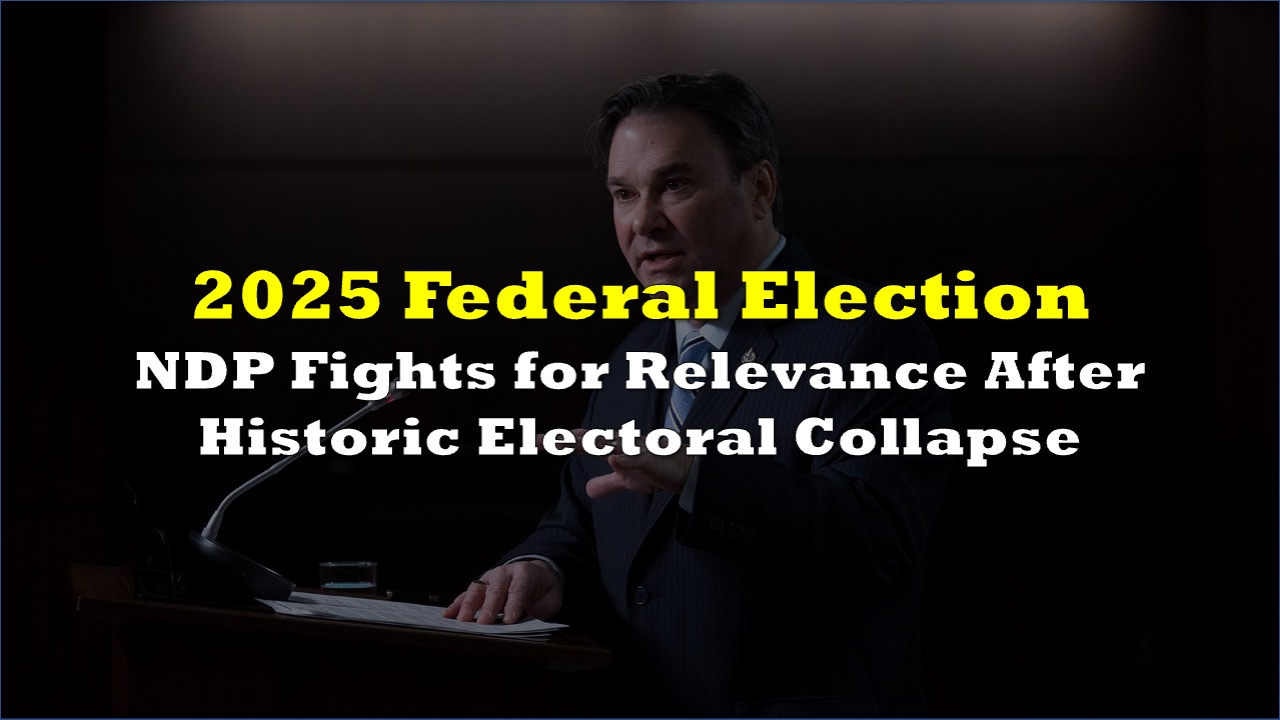




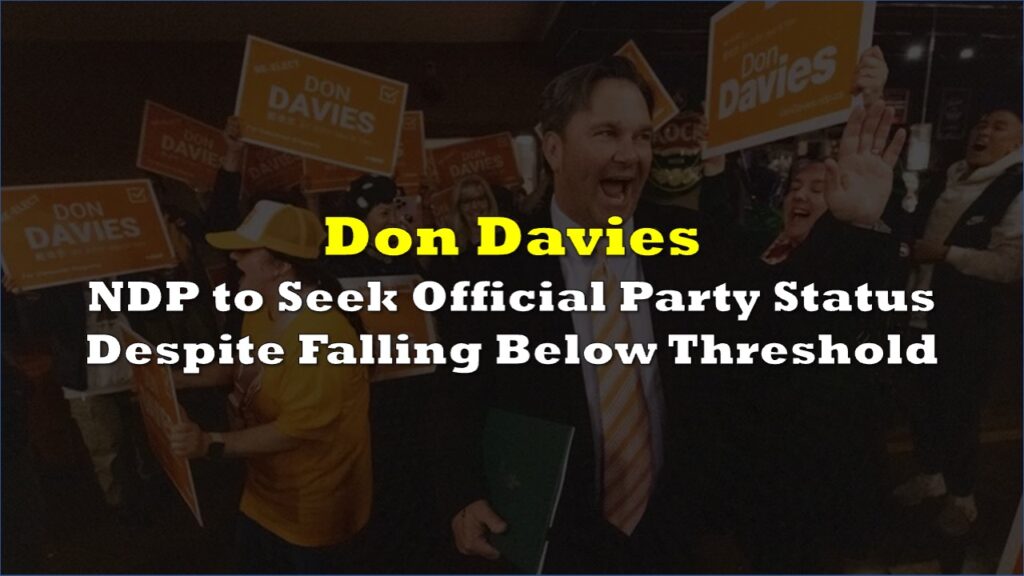
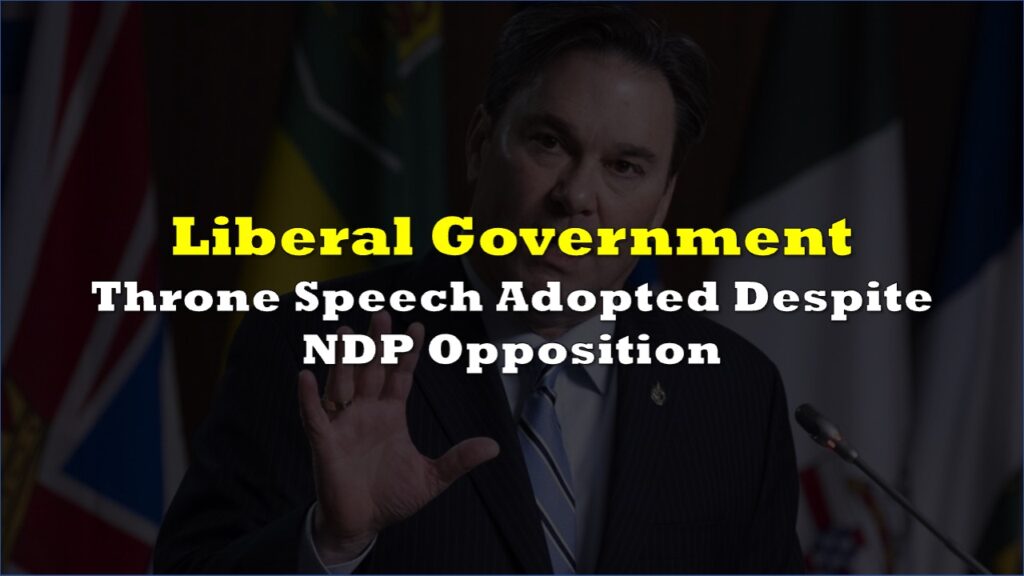
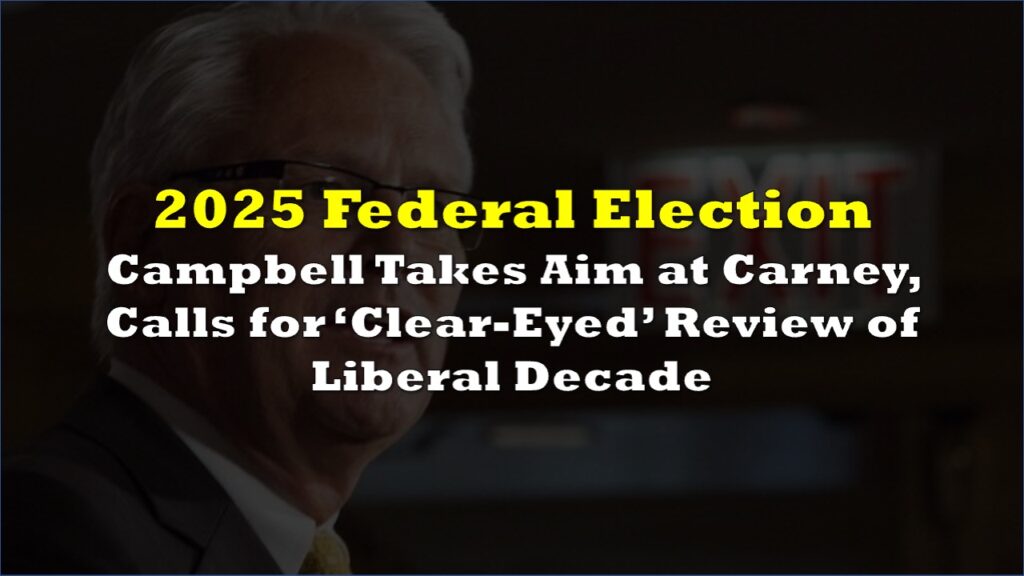
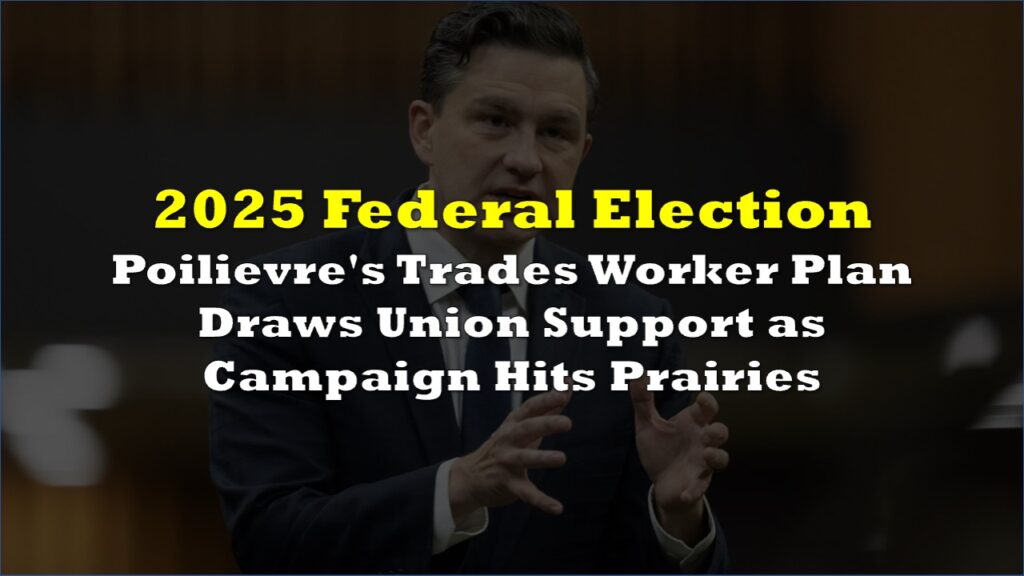
One Response
The NDP has never been relevant in Canada, they’ve just been a resting place for unhappy liberals